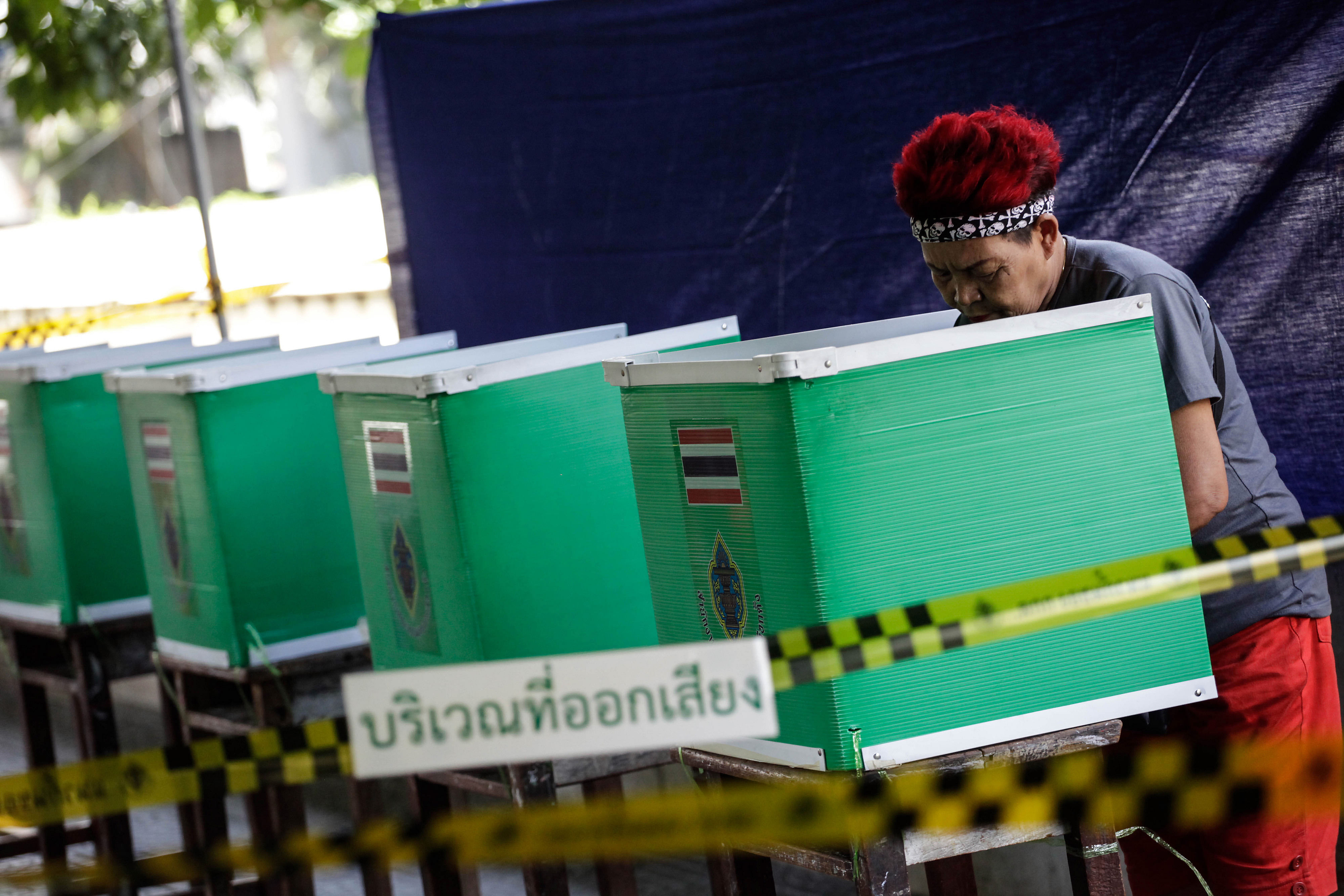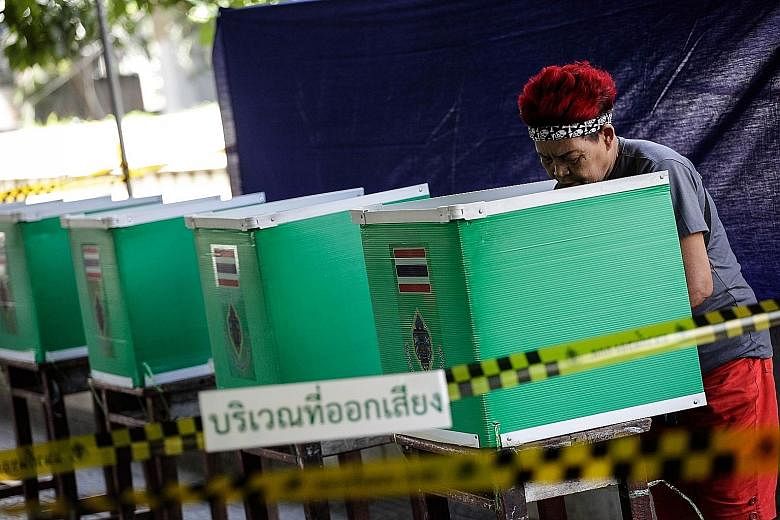Lessons from Thai referendum
Suthichai Yoon
The Nation, Thailand
The outcome of the Aug 7 referendum was not much of a surprise although it did send a few important messages that, if well taken, could pave the way for getting closer to solutions to some of the deep-rooted problems.
A total of 27 million out of 50 million eligible voters cast their ballots, representing a turnout of 59.4 per cent. The overall tally showed 61.3 per cent approving the draft Constitution and 38.7 per cent rejecting it.
On the second question whether to allow appointed senators to jointly vote on the new prime minister with elected MPs, the "Yes" ballots accounted for 58.07 per cent while the "No" votes stood at 41.93 per cent.
As was only to be expected, the results were immediately interpreted from different angles. Those who had campaigned against the draft charter pointed to the low turnout, questioning the legitimacy of the outcome. Those who had vowed to support the draft Constitution were elated, arguing that this was a "victory" for the "pragmatists" clamouring for "political reform" before elections could be held.

The first clear "message" from the referendum was: We are nowhere nearer to national reconciliation than either before or after the May 2014 coup, despite pledges from all parties concerned to reach out to their rivals to put the long drawn-out conflict behind.
Almost immediately after the preliminary results of the voting were known, the supporters and opponents of the two-point referendum were pointing fingers at one another for the other side's "questionable tactics" to win the battle of the hearts among the general populace.
It's not hard to predict that noisy confrontations will continue as the process of drawing up at least 10 organic laws to supplement the main charter begins to take shape. The verbal exchanges will not be debates over the merits or demerits of each detail of the new law. It would inevitably be along the so-called "pro-democracy" and "pro-military" arguments.
The second vital message from the referendum was: We simply do not trust the politicians.
When Democrat Party leader Abhisit Vejjajiva publicly declared his stand against the draft charter, he was, whether he intended it that way or not, virtually joining forces with his arch-enemy, the Pheu Thai Party, to form a political bloc that went against the National Council for Peace and Order (NCPO) and the Constitution Drafting Committee. Rightly or wrongly, it was seen as a new confrontation between the "professional politicians" on the one side and the military-backed charter writers on the other.
When the draft was finally passed with a reasonably big margin nationwide, the inevitable conclusion was that the majority of the voters simply did not trust the politicians. The voting pattern could also suggest that those who cast their ballots in favour of the draft were not quite ready to let the country return to the pre-coup days of street protests, slogan-shouting, bomb-throwing melee just yet.
Emperor's role as symbol of state
Editorial
The Yomiuri Shimbun,Japan
It is imperative to reflect on the Emperor's thoughts sincerely and use this occasion to discuss widely the role of the Emperor as the symbol of the state.
The Emperor, who has indicated his desire to abdicate, revealed his thoughts in an unusual video message. Amid the rapid ageing of society, the Emperor expressed his thoughts about what he called "a desirable role of the Emperor in a time when the Emperor, too, becomes advanced in age".
While respecting his intention, it is necessary to deepen discussions on the matter.
If the Emperor becomes unable to perform activities energetically in the future, will he be unable to remain the symbol of the state?
Undeniably, there are a host of difficult challenges involved in realising abdication.
Some people say that voluntarily stepping down from the Chrysanthemum Throne is inconsistent with the stipulation in the supreme law that the Emperor shall be "the symbol of the State and of the unity of the people, deriving his position from the will of the people". If old age can be used as a reason to abdicate, the issue will not be confined to the reigning Emperor alone.
There is also the issue of consistency, as the government in its response in the Diet has argued against abdication by pointing out the possibility of the Emperor being forcibly dethroned for political ends.
These points must be made well known to the public. Discussions must be held thoroughly .
Upcoming Legco elections
Zhou Bajun
China Daily, Hong Kong
The 2016 Legislative Council election is the most fiercely contested yet. Compared with the previous five Legco elections, this one has already thrown up two unprecedented phenomena.
One is the largest number of competitors representing more colours of the political rainbow in Hong Kong than ever before.
The Special Administrative Region's (SAR) political arena has been dominated by two major camps since the July 1, 2003, mass rally pushed them to the forefront. Fast-forward to the first half of 2010, the opposition camp split into two subgroups of "moderate pan-democrats" and "radical pan-democrats", while the pro-establishment camp found the New People's Party and Liberal Party leaning closer towards the middle of the political spectrum. But the two major camps remained as opposed to each other as ever.
After the illegal "Occupy Central" protest in late 2014 and the failure of the SAR government's electoral reform Bill last year, both camps found themselves more fragmented than ever. The "pan-democrats" further split into "traditional opposition groups" and "localist radical groups pursuing separatism".
The "traditional opposition groups" were formed long before "Occupy", and the "localist radical separatist groups" emerged during the "Occupy" movement. In the pro-establishment camp, meanwhile, the firmly patriotic groups and the swinging centrist groups saw their differences becoming more pronounced than ever.
At the same time, all political groups are experiencing the problem of leadership succession, with different levels of internal conflict occurring.
All the new developments have manifested themselves in the current Legco election campaign.
It should be noted that first, all major political groups have entered new (young) hopefuls in the Legco race; second, those advocating "self-determination" or "Hong Kong independence" have gone all out - literally; and third, the relations between rivals and allies are more complicated than ever.
The pro-establishment camp may not appear so chaotic but the challenges it has to face from the opposition camp are no less daunting than before.
Another phenomenon is the no-nonsense way the SAR government upholds the Basic Law in regard to Hong Kong's constitutional status by rejecting the applications by seven "localist radical separatists" for Legco election candidacy so far.
It is the first time in Hong Kong history that any election hopeful has been disqualified from the start. Hong Kong society cherishes all the civil liberties enshrined in the Basic Law, such as free speech, assembly and association. But they must meet a fundamental precondition: recognise and respect Hong Kong's constitutional status as a Special Administrative Region of the People's Republic of China.
- The View From Asia is a weekly compilation of articles from The Straits Times' media partner ANN, a grouping of 21 newspapers. For more, see www.asianews.network.

